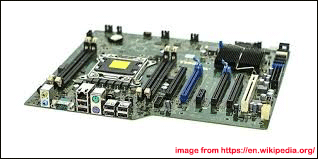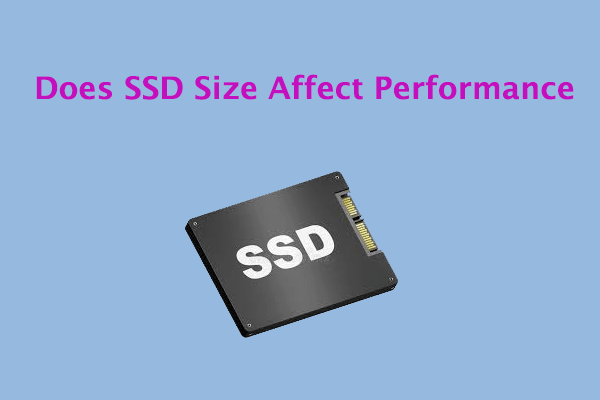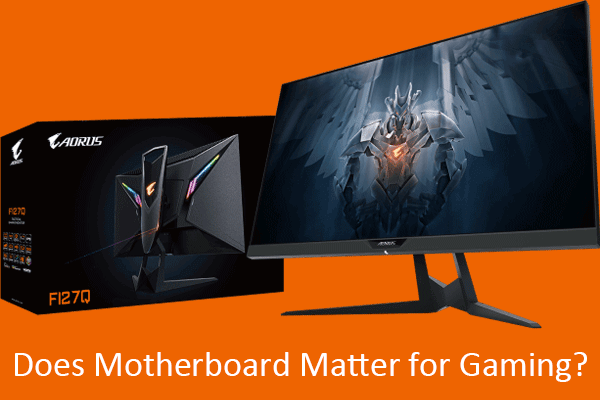A motherboard plays a vital role in the performance of the computer. It can be said that without the support of the motherboard, our computer can do nothing. At this time, you may have questions: does a motherboard affect performance or FPS?
Now, this article will tell you the answer to the question. Please keep reading.
Does a Motherboard Affect Performance?
A motherboard does not directly affect the performance of your computer because it has no impact on the actual specifications of the machine. However, when overclocking different components of your computer, such as the CPU and GPU, the motherboard can have an impact on performance.
What Is a Motherboard?

In a computer, a motherboard is responsible for making all of the components of the computer work together, including the CPU, GPU, and RAM, so that the computer can actually run properly. In addition to this, the motherboard is also responsible for knowing how much power to provide to these parts and components.
Also, differences in parts can cause some motherboards to perform better than others due to manufacturing quality, chipset capabilities, and hardware differences.
Does a Motherboard Affect Performance?
When talking about the performance of a computer, it’s about the overall specifications of the different parts and components that the computer needs to actually run. While the motherboard is certainly important, it’s not the part that affects how well the computer runs.
Some important factors that affect a computer’s overall performance are its components like its CPU, GPU, and RAM. However, the motherboard can affect the quality of your computer’s components, which can also indirectly affect your computer’s performance because it determines what parts can be used.
For example, if you have an older motherboard, it will only support certain types of CPUs, which are likely older as well. This means that the motherboard determines the limits of what parts and components your computer can use.
How Does a Motherboard Indirectly Affect Performance?
While it was mentioned above that the motherboard doesn’t directly affect the performance of your computer, it can improve or affect the overall performance of your machine in other ways, like overclocking.
The motherboard can also indirectly affect the performance of your computer because it affects your computer’s ability to be overclocked.
“Overclocking” refers to making a component run faster than it was designed to run. Some individual components, such as the CPU, can safely run at higher speeds. However, if you run these components beyond their rated speed, you’ll require more power and generate more heat.
Some high-end motherboards come with additional cooling for the motherboard itself, more powerful power management and delivery components, and more options for fine-tuning components. This makes it easier to get a stable overclock and benefit from the extra performance locked into the components.
The motherboard’s “chipset” can determine whether you can overclock, and lower-end motherboards omit these options, even if the CPU in that motherboard is capable of overclocking.
Modern CPUs and GPUs also automatically overclock based on the power and thermal capacity of the system. Using a more powerful motherboard may allow these components to reach a more stable performance level.
Does a Motherboard Affect FPS?
FPS refers to how fast each frame moves on your computer when you play a game. Usually, the frame rate of a game is determined by the main components such as the CPU, GPU, and RAM.
When you overclock your computer processor, you are improving the performance of the CPU. The better and faster the processor, the smoother the game will run. Therefore, since the processor is now running faster and better than before, the FPS will increase.
So, the role that the motherboard plays in overclocking is precisely because it helps regulate the voltage and keep the different parts of the computer stable when the processor is overclocked. This can make the computer have a more stable running time and ultimately provide you with the best gaming experience.
Essentially, the way the motherboard improves or affects FPS is through the overclocking ability of the computer.
Bottom Line
Does a motherboard affect performance or FPS? Now, you may have the understanding.
By the way, we would like to recommend a powerful partition and disk manager – MiniTool Partition Wizard for Windows 11/10. It can be used to handle many powerful tasks, such as “extend/resize/copy partition, clone a hard drive, convert FAT32 to NTFS, convert MBR to GPT, migrate OS to SSD, rebuild MBR” and so on.
MiniTool Partition Wizard FreeClick to Download100%Clean & Safe



User Comments :